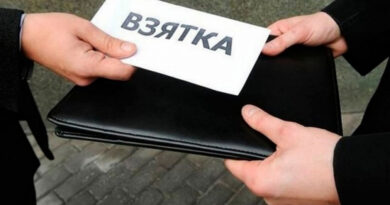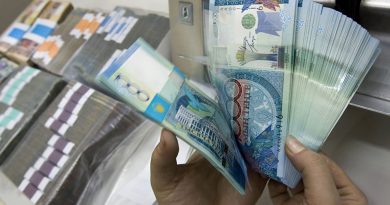Uzbekistan: Torture Prevention Committee is created bypassing civil society
At the online briefing, the deputy prosecutor general, Svetlana Artykova, announced the creation of the Committee that will be accountable to the Parliament and the President. In her speech, she explained this by assessing the situation of torture, which “causes well-founded public concern” and is negatively assessed in international ratings and indicators. S. Artykova noted that “the place of Uzbekistan in the Human Development Index, annually published by the UN Development Program, has not changed in the positive direction over the past 20 years.”
During the governing of the President Mirziyoev, this is the second attempt to combat violence. In April 2018, the law was enacted that increased responsibility for the use of torture and other inhuman or degrading treatment or punishment. Changes in legislation for the use of torture entail punishment for a term of three to five years, with the deprivation of the right to occupy certain positions. If serious bodily harm was caused or other serious consequences occurred, the punishment would be from 7 to 10 years in prison.
Information about to whom and when the sentences were pronounced is not available in the public space. The Deputy Prosecutor General only provided statistics that over the past three years 757 applications and messages were received (2019 – 208, 2018 – 352, 2017 – 197); criminal proceedings were instituted on 33 applications. The reason for the trial was torture, intimidation and harassment by law enforcement officials.
Human rights activist from Uzbekistan, Tatyana Dovlatova, believes that real statistics on torture are much higher.
“There are immeasurably more cases! The Prosecutor General’s office, the Main Directorate for the Execution of Sentences under the Ministry of Internal Affairs, the Ombudsman and other organizations gave us the runaround to all our claims concerning violation of the rights of prisoners; they say that facts are not confirmed. And the officials from the Main Directorate for the Execution of Sentences also declare that we tell lies,” said Dovlatova.
Even a preliminary assessment by international experts of the news caused a lot of questions and comments. An expert of the Helsinki Foundation for Human Rights, a former employee of the National Preventive Mechanism under the Ombudsman of Poland, Alexandra Ivanovski, in a comment to ACCA noted that it’s necessary to look through the text of the document, which is not yet available to the general public. “This position is especially justified subject to the fact that the Committee should combine both the powers of the investigating authority and the institution providing rehabilitation and support to victims of torture, which is an unprecedented approach in the international practice of preventing torture,” said Ivanovski. “It should also be recalled that the creation of the Committee for the Prevention of Torture doesn’t exempt the Uzbek authorities from the need to ratify the Optional Protocol to the UN Convention on the Prohibition of Torture and establish a National Preventive Mechanism in accordance with the requirements of the Optional Protocol.”
“Detachment from the power bureaucracy in monitoring the facts of violence can be ensured only by civil society, whose state in Uzbekistan is amorphous. The authorities still don’t dare to let human rights defenders go to penitentiary institutions,” said an ACCA expert.
Muzaffar Suleymanov, an employee of the Eurasian department of Civil Rights Defenders (CRD, Sweden), also has no doubt in the need to remove all obstacles for the work of independent Uzbek human rights defenders and independent media (pressure from law enforcement agencies and special services; refusals to register NGOs and access to jail / prisons; control over access to foreign financing, etc.), because they will be able to tell the public about what is happening in places of deprivation of liberty. A Central Asian researcher points to article 235 of the Criminal Code of Uzbekistan, which clearly defines who and what should be done in relation to fixing the most severe violations of human rights, and the Ombudsman of the country said this in 2018. “It’s necessary to strengthen law enforcement, and not create another outward appearance of work on a serious problem,” summarizes M. Suleymanov.
If the authorities are seriously concerned about the image of the country, then they are obliged to take seriously the recommendations of international experts. According to the CRD’s expert, the authorities should organize a nationwide audit of law enforcement agencies, special agencies, prosecutors and courts to understand the problem of human rights violations, including torture. There is an urgent need to train all current employees in the basic principles of human rights and introduce testing on an annual basis.
It is also required to continue the investigation of all documented facts of torture. Those law enforcement officers, special services, prosecutors and courts, who were noticed or caught in torture / other human rights violations, covered for or didn’t investigate, bring them to disciplinary liability, remove them from their positions, and / or make them responsible by law.
There are big doubts that the country’s leadership will go for it. In November 2019, at the 68th session of the UN Committee against Torture in Geneva, Uzbekistan denied justice to 19 former political prisoners with the definite wording “…The above persons were released from prison, but were not acquitted. Also taking into account that the arguments of these persons concerning the use of torture were not confirmed, compensation for torture or cruel treatment during their detention is not possible.”
The Association for Human Rights in Central Asia (AHRCA, France) and other competent international organizations have repeatedly and convincingly proved in their investigations that the authorities are not interested in a large-scale and unconditional fight against torture. The height of cynicism was the behavior of the official delegation at the session in November. The President of AHRCA, Nadejda Ataeva, noted in her publication that “a video of Akmal Saidov’s speech was posted on the UN website, where he spoke passionately at the session of the UN Committee against Torture in November 2019 and at the session of the UN Human Rights Committee in March that convicts of torture have equal rights to pardon and amnesty for prisoners, because all are equal before the law.”
Probably, the first deputy speaker of the Legislative Chamber of the Parliament and the director of the National Center for Human Rights of Uzbekistan, Akmal Saidov, had in mind Nazim Jumaev, whom the Uzbek human rights activists had named executioner No.1. He is currently serving a 20-year sentence. Master of torture, nicknamed Nazym Bukharsky, by order of senior officers from law enforcement agencies, dealt with the imprisoned entrepreneurs on the instructions of their competitors. In addition, he brutally tortured prisoners convicted of religious beliefs and opponents of Karimov’s regime. Now his senior patrons are trying for some humanitarian reasons to provide him a pardon from the President of Uzbekistan Shavkat Mirziyoev.
It remains to be assumed how the country’s authorities will react to the statement of Ms. Ivanovski that “the effectiveness of any agency for the prevention of torture requires the introduction of the principle of independence in the field of competences, functions and financial stability of this agency. Independence and protective measures should also be guaranteed to the Committee staff, its members must have the necessary knowledge and experience in the field of combating torture, as well as adherence to ethical and moral principles.”




